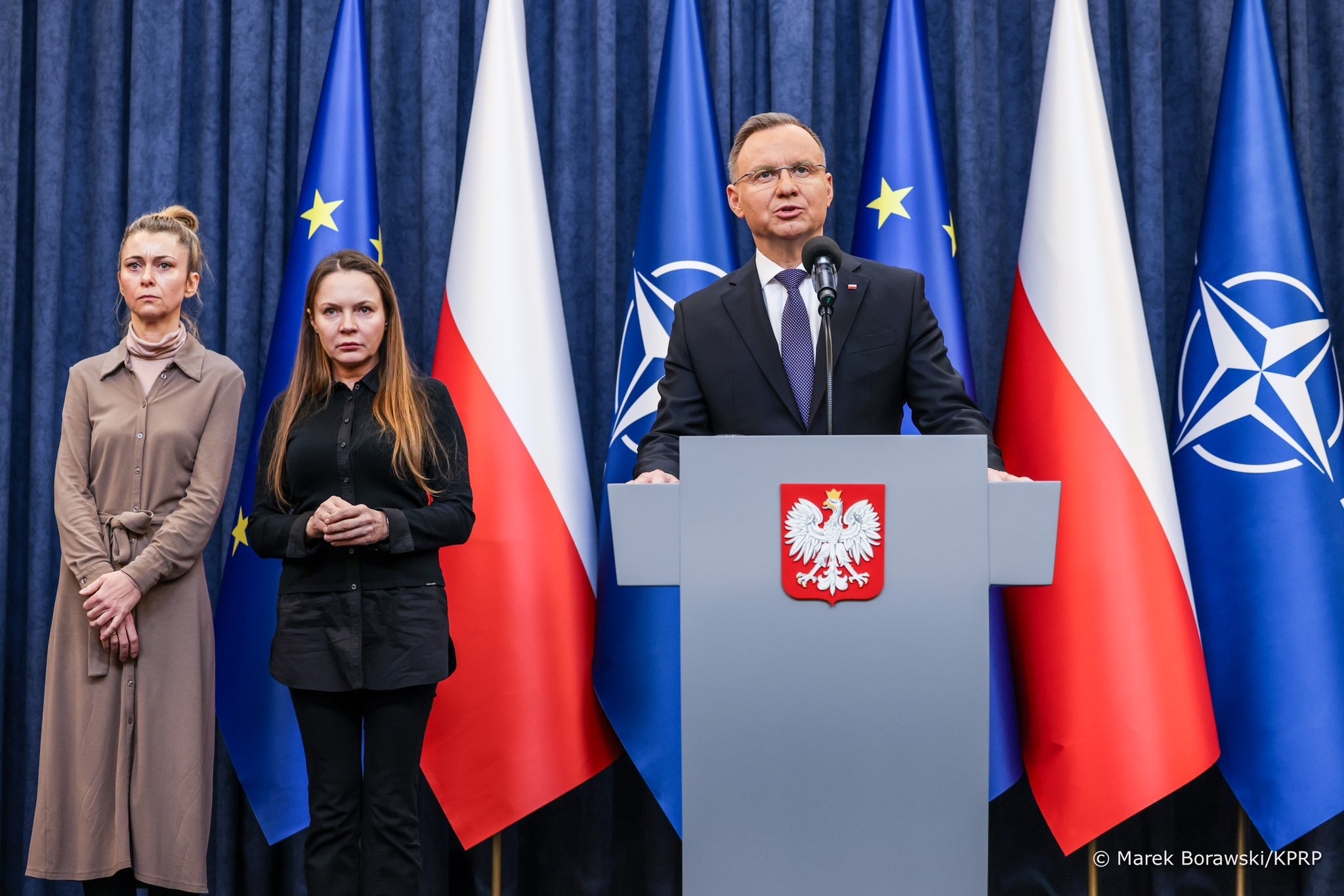President Andrzej Duda declared on Thursday that he has commenced clemency proceedings for two conservative politicians, Mariusz Kamiński and Maciej Wąsik, currently being detained in Poland.
The decision came after a personal request from the wives of the two men, Barbara Kamińska and Romualda Wąsik, and was preceded by a meeting between them and the Polish president.
President Duda began by acknowledging Kamiński and Wąsik as the first political prisoners since 1989, expressing no doubt about their status. He remarked that these individuals, known for pursuing criminals, may have taken actions that are disapproved of by many in high-profile positions today.
Addressing the complexity of the situation, both legally and personally, Duda mentioned his long acquaintance with Kamiński, spanning 18 years, and described him as a trustworthy and honorable friend. He also asserted that both Kamiński and Wąsik should still be recognized as members of parliament.
Explaining the process, Duda stated that he had directed his initial steps toward the general prosecutor as part of the presidential clemency procedure. He explicitly requested that General Prosecutor Adam Bodnar consider immediate release for both men, emphasizing the national interest in the matter.
Following the president’s statement, Law and Justice (PiS) party leader, Jarosław Kaczyński, said that if this leads to the desired outcomes, it would be positive, although he noted the uncertainty inherent in the decisions of Polish courts. On being asked why such a step wasn’t taken earlier, Kaczyński deferred the question to the president himself.
A Warsaw court in December of last year sentenced Kamiński and Wąsik to two years imprisonment and barred them from holding public office. This was confirmation of a conviction secured in 2015 for alleged abuse of power in instigating a sting against government officials when working for anti-corruption authorities.
President Duda pardoned the two in the same year even though they had appealed their prison sentences. However, one of the chambers of the Supreme Court ruled that the president’s pardon was invalid since the whole legal process had not been completed and the cases should return to the Court of Appeal.
The Court of Appeal upheld the conviction and, based on that verdict, the speaker of parliament issued his ruling that the two deputies’ mandates had expired. However, the Supreme Court last week took a decision to overturn the speaker’s ruling, even though two different chambers of the court, Labour and Supervisory, have taken diverging positions on the issue.
Also last week, the Chief of the Presidential Chancellery Grażyna Ignaczak-Bandych denied rumors of potential further presidential pardons for the former ministers.






